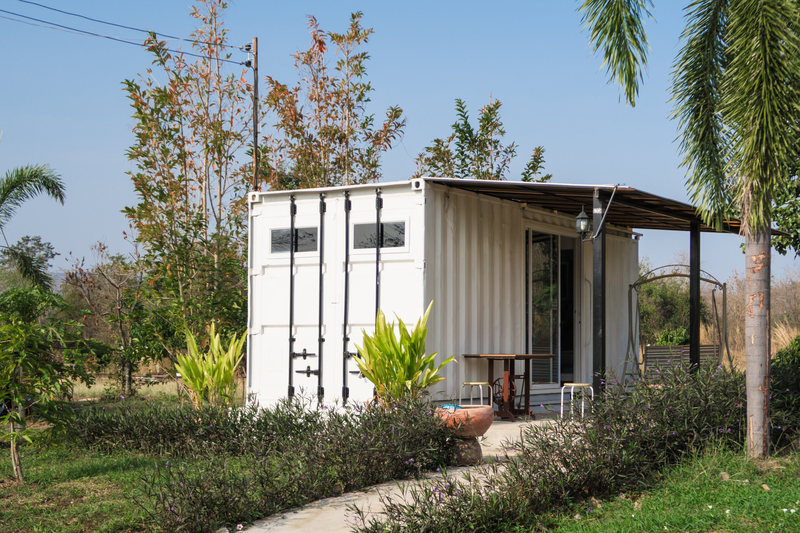How to Cut Costs on Bulky Waste Removal Without Sacrificing Convenience
Bulky waste removal can quickly become expensive and inconvenient if you don't plan ahead. Whether you're clearing out a garage, renovating your home, or handling the fallout of a big move, large-item disposal often presents unique logistical and financial challenges. But with some strategic thinking and resourcefulness, you can cut costs on bulky waste removal without sacrificing convenience. This comprehensive guide will explore actionable tips, best practices, and alternative disposal methods that will save you time, money, and hassle.
Understanding Bulky Waste Removal
Bulky waste typically refers to items that are too large for standard collection services. Examples include:
- Furniture (sofas, wardrobes, beds)
- Large appliances (refrigerators, washing machines)
- Mattresses and bed frames
- Carpets and rugs
- Garden waste (trees, large branches)
- Renovation debris (old fittings, doors, windows)
Most regular waste collection services do not accept these items, or charge hefty fees for their removal. Therefore, knowing how to manage bulky waste disposal cost-effectively is an essential skill for homeowners, tenants, and landlords alike.

Why Bulky Waste Removal Can Be So Expensive
Bulky waste removal typically incurs higher fees because it:
- Requires larger vehicles and extra labor
- May involve hazardous materials (e.g., old fridges with refrigerant gas)
- Certain items require special handling or recycling processes
- Landfill and recycling site charges can be higher for heavy or large items
But with some planning, it's entirely possible to reduce or even eliminate these costs. Below, you'll find practical advice and creative alternatives for affordable bulky item removal that doesn't compromise on convenience.
Compare Local Bulky Waste Removal Services
1. Get Multiple Quotes
Start by contacting several local waste disposal companies. Prices can vary significantly depending on your location, the type and quantity of items, and the provider's own costs. Ask for detailed quotes:
- What is included? (collection, loading, disposal, recycling)
- Are there any hidden or additional fees?
- Do they offer discounts for multiple items or off-peak times?
Quick comparison shopping often leads to substantial savings on bulky waste removal services.
2. Take Advantage of Council Services
Many local councils offer bulky item pick-up or large waste collection services. Sometimes these are free, sometimes they are subsidized, and often much cheaper than private companies.
- Check your municipality's website for details.
- Find out about collection frequency, maximum allowed items, and eligible waste types.
- See if you need to book in advance or pay a small fee.
Council options may be less flexible with scheduling, but they're usually the most cost-effective bulky waste removal solution in many regions.
3. Pool Resources With Neighbors
Organizing a shared bulky waste removal with your neighbors can result in significant savings:
- Split the cost of one collection service or skip hire among several households.
- Coordinate to schedule major cleanouts at the same time as block or neighborhood events.
- Some councils and companies offer discounts for group bookings.
Strategies to Reduce Bulky Waste Removal Costs
4. Donate or Sell Usable Items
Many "junk" items are still valuable to others. Instead of paying for removal, you might be able to donate or sell bulky items:
- List them for free on local classifieds, Facebook Marketplace, or Freecycle.
- Contact charities, shelters, or reuse organizations that accept furniture and appliances (some even collect for free!).
- Host a yard sale and let others haul away your big items for you.
Donating or selling not only reduces your costs but is an environmentally friendly way to give bulky items a second life.
5. Recycle or Repurpose
Many local recycling centers accept bulky recyclable waste such as metal, wood, or electronics, often at much lower fees than general landfill disposal. Call ahead to check:
- What kinds of items they accept, and if there are size or weight limits
- Whether some materials (like scrap metal) might even earn you money
- If they offer free drop-off days or community recycling events
Alternatively, consider upcycling or creative repurposing for certain items--old doors can become tables, drawers become planters, and so on.
6. Dismantle Items Yourself
The cost for bulky waste collection is often based on the size or volume of the items. If you can disassemble large furniture or break down materials, you:
- Reduce the total volume and weight, potentially qualifying for smaller, cheaper loads
- May be able to fit items in your car, saving on pickup costs by delivering to a waste or recycling center yourself
- Make garage or curbside storage easier while you wait for collection
Always check safety guidelines when dismantling large objects and ensure you have the right tools.
Explore Alternative Bulky Waste Removal Options
7. Rent a Skip or Dumpster
For very large quantities of debris, hiring a skip or dumpster may be cost-effective--especially if you can share the bin with others.
- Compare rental prices, sizes, and included services
- Check if you need a permit for street placement
- Maximize value by timing your rental for a big cleanout project
The convenience of a skip is that you can dispose of items at your own pace, but be sure to avoid prohibited items (like tires or chemicals), as these may incur extra disposal charges.
8. Hire a "Man and Van" Service
If you have only a handful of items, a local man and van junk removal might be cheaper than a formal rubbish removal company. Benefits include:
- Flexible scheduling (same-day or weekend pickups)
- Prices usually based on how much space you use in their vehicle
- Help with loading and lifting
Be sure to check customer reviews and confirm they are licensed to dispose of rubbish legally and responsibly.
9. Use DIY Drop-Off Points
If you have transport, many towns and cities operate household waste recycling centers (HWRCs) or transfer stations specifically for bulky waste drop-off. Often, these services are free or have minimal fees for residents:
- Check the facility's accepted items list and opening hours
- Ask about ID requirements or residency proof
- Plan to load and unload items yourself or bring help for heavy objects
How to Stay Organized for Effortless Convenience
10. Schedule Removal Around Your Plans
Convenience is often sacrificed when removal doesn't fit your schedule. Avoid this by:
- Booking early--this ensures you get your preferred dates and potentially better prices
- Choosing "off-peak" times (weekdays, non-holiday periods) for cheaper rates
- Consolidating multiple items in one pickup to maximize value
11. Label and Group Bulky Items
Make life easier for both you and your removal team with a bit of extra organization. Group similar items together and label them clearly (e.g., "for recycling," "council pickup"). This helps avoid costly mistakes like sending a donatable item to landfill, or paying extra disposal fees for mixed loads.
Save on Bulky Waste Removal by Avoiding Common Mistakes
- Don't wait too long: Storage fees, landlord penalties, or health hazards can cost more than prompt removal.
- Double check for hazardous materials: Some bulky waste (like electronics or fridges) incurs special charges and needs special handling--mixing them in with regular items could result in fines.
- Avoid illegal dumping at all costs: Unauthorized disposal isn't just bad for the environment; it can result in steep legal fines.
- Only use licensed waste carriers: Unlicensed removers may dump your waste illegally, leading to potential prosecution for you.

Frequently Asked Questions About Bulky Waste Removal
What items are classified as bulky waste?
Bulky waste generally means household waste items that are too large to be collected with regular refuse--such as furniture, white goods (large appliances), beds, carpets, and construction debris. Check with your local council or service provider for their specific list of accepted bulky items.
Can I leave bulky waste on the curb?
Some areas allow curbside collection of bulky items (sometimes by appointment), but in other places, it's illegal. Always confirm with your local council before leaving items out, and never dump large waste in public spaces without explicit permission.
How often can I use council bulky waste removal?
Most councils limit the number of free or subsidized bulky waste removals per household (e.g., once or twice per year). Additional pickups may incur costs. Check your council's waste management policy for details.
What happens to my bulky waste after collection?
Much bulky waste is recycled or repurposed, but some items may still go to landfill. To minimize environmental impact, seek providers committed to recycling, or use dedicated recycling centers for specific materials such as metal, wood, or electronics.
Conclusion: Cost-Effective Bulky Waste Removal Is Possible
Bulky waste removal doesn't have to break the bank or cost you valuable time. By comparing services, pooling resources, donating, recycling, dismantling items, and exploring DIY options, you can significantly reduce costs without compromising on convenience.
Remember, a little planning--such as getting quotes, checking council schemes, and booking ahead--goes a long way. Start with the tips above to transform what feels like a daunting, pricey chore into an efficient, budget-friendly bulky waste solution that serves your household and your community.
Ready to start your clutter-free journey? Review your options today and make your next bulky waste removal experience smooth, cheap, and convenient!
